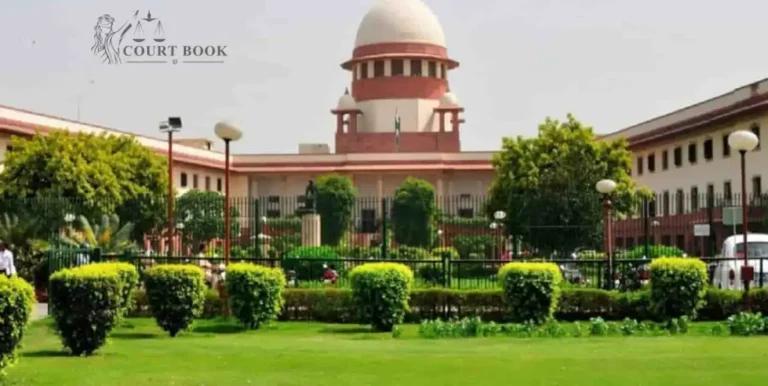The Supreme Court of India is set to address a significant legal question under the Electricity Act, 2003—whether the word “regulate” in Section 79(1) of the Act is confined only to making rules and regulations, or if it also includes oversight and control over the trading of electricity.
"Our attention is drawn to paragraphs 53 to 55 of the Constitution Bench judgment in PTC India Limited v. Central Electricity Regulatory Commission... It is submitted that clauses (b), (c), and (f) under Section 79(1) do not restrict ‘regulate’ to just rule-making, but also cover trade regulation in the electricity industry," noted a bench comprising Chief Justice Sanjiv Khanna and Justice Sanjay Kumar in its recent order.
The observation was made while hearing a petition filed by PTC India Limited against a Delhi High Court order. The High Court had dismissed PTC’s application under Order 7 Rule 11 of the Civil Procedure Code (CPC), seeking rejection of a suit filed by MB Power (Madhya Pradesh) Limited.
Read Also:- Supreme Court Affirms State Commissions' Authority Over Power Supply Affecting State Grids
Background of the Dispute
In 2021, PTC India entered into a Power Supply Agreement (PSA) with Tamil Nadu Generation and Distribution Corporation Limited. Subsequently, it signed a back-to-back Power Purchase Agreement (PPA) with MB Power. As per the PPA terms, MB Power provided a performance security in the form of a Bank Guarantee issued by the State Bank of India in favor of PTC India.
The agreement also required PTC India to issue a Letter of Credit. MB Power raised objections regarding this Letter of Credit and requested amendments. While PTC India claimed it made the necessary changes, MB Power allegedly did not respond. Later, MB Power stated that the PPA stood terminated as the "Appointed Date"—the date on which the contract was to begin—did not materialize within the stipulated 120 days.
Following this, MB Power filed a suit seeking mandatory and permanent injunction to prevent PTC India from invoking the Bank Guarantee, alleging unlawful retention of the guarantee amount post-PPA termination.
Read Also:- Supreme Court Affirms Governments Authority to Revoke Economic Incentives in Public Interest
PTC India, in its defense, argued that the transaction fell under Section 79(1) of the Electricity Act. Therefore, the Central Electricity Regulatory Commission (CERC) had exclusive jurisdiction to resolve the dispute.
“Section 79 gives CERC the authority to handle disputes involving generating companies or transmission licensees in matters connected to clauses (a) to (d),” argued PTC India. They claimed the matter fell under clause (b), which relates to regulation of tariffs in composite power generation schemes across multiple states.
PTC India also alleged that MB Power backdated the termination letter to avoid fulfilling its contractual obligations, intending instead to sell electricity at a higher rate through power exchanges.
MB Power, on the other hand, maintained that the PPA never became operational, making it a dispute over an inchoate agreement. They emphasized that the matter was not governed by electricity law but was instead a contractual issue. Hence, they asserted, the suit was maintainable and outside the purview of CERC.
They further argued that Section 79(1)(f) allows CERC to adjudicate only when the dispute is connected to matters under Section 79(1)(a) to (d)—mainly tariff-related issues. Since no power was ever supplied and no tariff determined, the dispute did not fall under these provisions.
Read Also:- J&K High Court: Chargesheet Document Index Doesn’t Fulfill Section 294 CrPC Requirement
The Delhi High Court sided with MB Power, observing:
"The agreement between the plaintiff and the defendant trading company stood terminated. There is no subsisting agreement or composite scheme for generation and sale of electricity... Thus, no tariff-related dispute exists that would necessitate adjudication by CERC."
The court dismissed PTC India’s claim that the issue had to be decided by CERC under Section 79(1)(b) and (f), holding that:
"There are no allegations or supporting documents that indicate a dispute over the tariff. The claim is strictly related to the return of the Bank Guarantee after the PPA was deemed terminated."
The High Court ultimately ruled that the civil suit was maintainable:
"The plaintiff’s right to seek return of the Bank Guarantee does not require adjudication of tariff issues. Since the PPA never commenced, the tariff provisions of the Electricity Act do not apply."
However, the court clarified that if any dispute arises over tariff for the duration when the PPA was effective before termination, then it may fall under the jurisdiction of CERC.
Challenging the High Court’s decision, PTC India moved the Supreme Court. In April 2023, the apex court issued a notice and passed an interim order restraining encashment of the Bank Guarantee.
"Proceedings before CERC may continue as per law, but no final order shall be passed," the Supreme Court directed, considering the matter was still under judicial consideration. It also instructed that no evidence be recorded in the High Court case for the time being.
In its latest order, the Supreme Court decided to continue with the interim measures while deliberating on the larger legal question—what exactly does the term “regulate” entail under Section 79(1) of the Electricity Act?
Case Title: PTC INDIA LIMITED v. MB POWER (MADHYA PRADESH) LIMITED, SLP(C) No. 5276/2023















